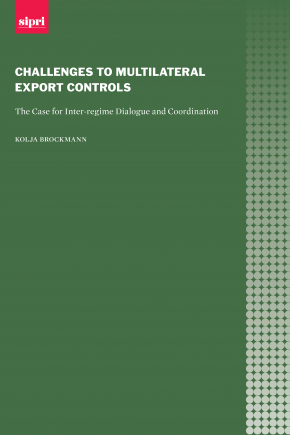Challenges to Multilateral Export Controls: The Case for Inter-regime Dialogue and Coordination
The multilateral export control regimes are informal groups of states that coordinate their participants’ controls on exports of proliferation-relevant goods, technologies and military items. Four main regimes—the Australia Group (on chemical and biological weapons), the Missile Technology Control Regime, the Nuclear Suppliers Group and the Wassenaar Arrangement on Export Controls for Conventional Arms and Dual-use Goods and Technologies—play a key role in setting norms for supply-side non-proliferation policies and state behaviour.
The regimes are grappling with significant challenges that affect their ability to fulfil their key functions. And, despite sharing similar functions, there has traditionally been limited official engagement between the regimes. Instead, participating states have mainly used other formats to discuss and coordinate policies on cross-regime issues. However, in recent years, several regimes have started to engage in more formal inter-regime coordination on control-list overlaps. These engagements have demonstrated both the obstacles that inter-regime dialogue faces but also highlighted the benefits that it can produce.
This report outlines common challenges faced by the regimes and different formats that participating states can use for engaging in dialogue and coordinating regime controls. It outlines obstacles as well as identifies the lessons learned from recent inter-regime activities. It makes the case for using more formalized inter-regime dialogue meetings, particularly to address the difficulties in controlling emerging technologies with cross-regime relevance and coordinating the production of guidance materials.
1. Introduction
2. The system of multilateral export control regimes
3. Common challenges faced by the multilateral export control regimes
4. Challenges and good practices in inter-regime dialogue and coordination
5. Conclusions and recommendations

